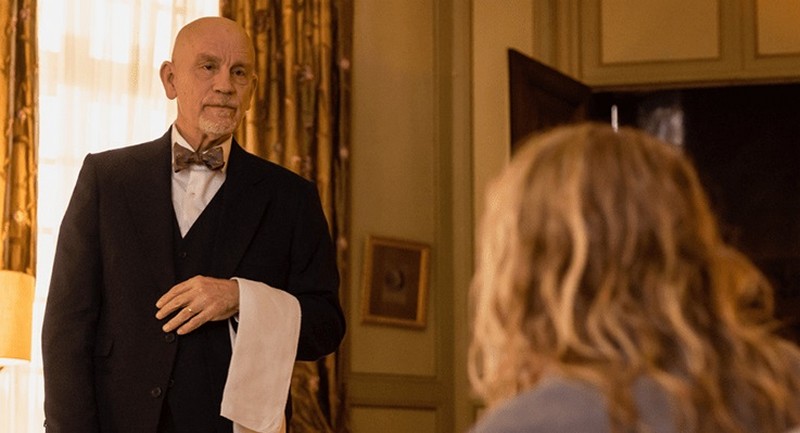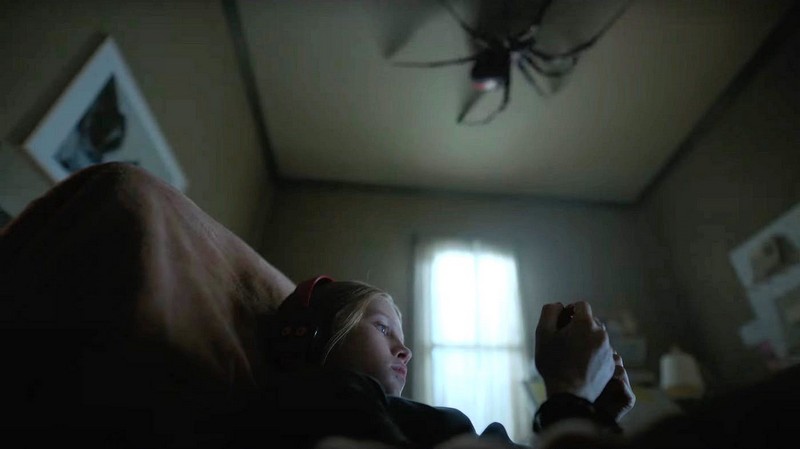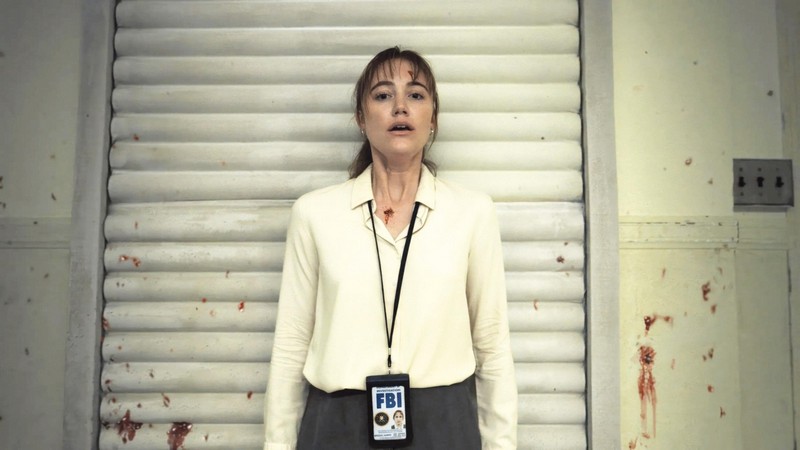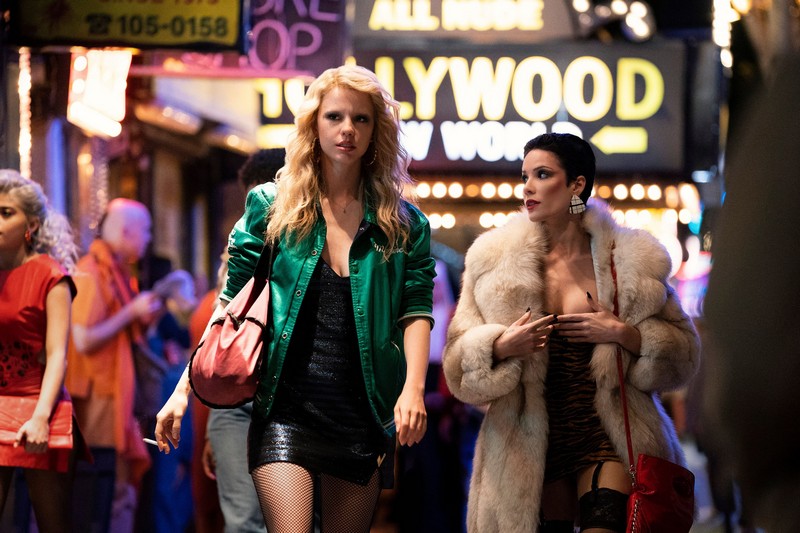“It was great to be able to go off and start making films because, all of a sudden the challenge was greater, and the emotional punch was greater,” says British filmmaker Mike Newell, who has just released his latest film, a lush adaptation of the best-selling novel The Guernsey Literary and Potato Peel Pie Society.
Newell began directing television series in the 60s, directing episodes of Coronation Street and Budgie and several made for television movies including The Kindness of Strangers in 1967 and The Man in the Iron Mask in 1977 before moving into features with films like Dance with a Stranger and The Good Father. “What [directing for television] did was it gave me lots of practice with lots of very kind actors who were prepared to overlook my incompetence,” he says candidly. “And that was an enormous bonus in doing that early television stuff. But what else it did though was frustrate me because I couldn’t get out of the boundaries of studio television, which all had to be made within the inside of a studio set, which all had an unreality about it. And I wanted to be out in the real world. So, it was great to be able to start making films because, all of a sudden the challenge was greater and just the realism and the emotional punch was greater.”
 The Guernsey Literary and Potato Peel Pie Society is a historical romance set in the aftermath of World War Two. It centres around writer Juliet Ashton (played by Downton Abbey’s Lily James), who forms an unexpected bond with a quirky group of residents on the island of Guernsey, which was occupied by the Nazis during the war. Her experiences on Guernsey change her life as she makes new friends and finds romance. It was written by Mary Ann Shaffer (who died before the novel was completed) and Anne Barrows, and was published in 2008. It has become a best seller. The novel was borne when Shaffer was conducting research to write a biography about Kathleen Scott, the wife of polar explorer Robert Scott. She made a side trip to Guernsey, and became fascinated by the history of the German occupation.
The Guernsey Literary and Potato Peel Pie Society is a historical romance set in the aftermath of World War Two. It centres around writer Juliet Ashton (played by Downton Abbey’s Lily James), who forms an unexpected bond with a quirky group of residents on the island of Guernsey, which was occupied by the Nazis during the war. Her experiences on Guernsey change her life as she makes new friends and finds romance. It was written by Mary Ann Shaffer (who died before the novel was completed) and Anne Barrows, and was published in 2008. It has become a best seller. The novel was borne when Shaffer was conducting research to write a biography about Kathleen Scott, the wife of polar explorer Robert Scott. She made a side trip to Guernsey, and became fascinated by the history of the German occupation.
The film version has been directed by Mike Newell, who has made films across a wide range of genres, although he is arguably best known for his work on the romantic comedy Four Weddings and a Funeral and Harry Potter and the Goblet of Fire. With that fourth film in the series he became the first British director to helm a film in the successful franchise. What does he look for in the films he makes? “For me it is always how interesting the characters are,” Newell continues. “If I can find a story in which the main character or characters are interesting and at the same time have some problems that they have to surmount, then what you get is a formula. That’s a pretty good rule of thumb for something that will interest me. Most of the films I’ve made are like that.”
Newell admits that part of his attraction to the story was the title, which bemused him. But he was also attracted to Juliet’s character arc and story. On the surface she seemed to be bright and engaged, and yet the war has utterly spoiled her life. It killed her parents and left her with few friends. She had been reduced to writing comedy sketches for newspapers to earn her living, which she was very good at, and had made money. But she hadn’t yet discovered a purpose in life.
“That’s a strong start, does this woman get to be fulfilled?” Newell says. “Can you be interested in the mechanism of how that happens? The story is very good in making that happen and making her happy. I loved that sort of cat’s cradle structure of the thing. It’s not a straight line at all, it doubles back and forth all the time. I loved that the story had been put together like that.”
The novel was written as a series of letters constructed between the various characters, which presented a challenge to the filmmakers, especially screenwriters Don Roos and Tom Bezucha. The film version contains half a dozen letters, and the filmmakers refer to the letters, so there is enough in the film to remind audiences of the original structure. It was important that the story had to be happening in the present tense, and that audiences had to feel that the characters are up against difficulties of their everyday life while writing about it in retrospect, explains Newell. “I think that it would fail in having to listen to other people’s voices read out what they have written. The decision had to be made, and it wasn’t me who made it, it was the writer.”
And given that the film is based on a popular novel, did he feel under pressure with the screen adaptation? Newell says that it becomes obvious when a film is not working. He loved the work of writer Tom Bezucha, and was very entranced by the way he told the story. “I didn’t want to do the book any disservice, because I knew that commercially the book was a big thing,” he adds. “But I was very convinced that the script was good. I wasn’t really looking over my shoulder at the book all the time. I just wanted to do the best work I could through the script.”
 Kenneth Branagh was originally attached to the project before Newell came on board. “I can’t tell you how common it is that you take on something,” he says with a hint of resignation. “I mean you virtually know who they are, you get people who have preceded you, it happens all the time. I can recognise the coffee stains from some of my friends, I can recognise Stephen Frears’ coffee stains. I know how many people have read the script, you can work it out. I knew how many people had read Four Weddings before I made it. It’s like casting actors – you know life is full of those stories about starting out with John Wayne and ending up with Joe Bloggs. And it is certainly true of other directors. Anyway, they get it wrong.”
Kenneth Branagh was originally attached to the project before Newell came on board. “I can’t tell you how common it is that you take on something,” he says with a hint of resignation. “I mean you virtually know who they are, you get people who have preceded you, it happens all the time. I can recognise the coffee stains from some of my friends, I can recognise Stephen Frears’ coffee stains. I know how many people have read the script, you can work it out. I knew how many people had read Four Weddings before I made it. It’s like casting actors – you know life is full of those stories about starting out with John Wayne and ending up with Joe Bloggs. And it is certainly true of other directors. Anyway, they get it wrong.”
Surprisingly, for a film set on the island of Guernsey it was actually shot in Devonshire. This was partly a decision born out of aesthetics and partly due to the small budget. Important to the film was the way it looked. The big epic landscape with sea coasts and the winds blowing was very necessary to the romantic side of the story. But, as Newell elaborates, “of course we’re now sixty years further on from the events of that story and the world has changed and Guernsey has changed very radically. It’s prosperous and it’s beautifully turned out, houses all beautifully painted and so forth. I had to be looking at a world in which the war had left a very strong thumbprint, I had to be looking at a place where there were ruins, where things hadn’t been painted for seven years, where everything was shabby, and people were making do. And you can find towns like that in parts of England, but you can’t in Guernsey. A movie can do anything, but we had quite a small budget. That’s why that decision.”
Greg King
Other reviews you might enjoy:
- The Guernsey Literary and Potato Peel Pie Society – movie review
- Samuel Gay (A Guide to Dating at the End of the World) – the interview
- The Killing of Two Lovers – Interview with director Robert Machoian

David Edwards is the editor of The Blurb and a contributor on film and television






One thought on “Mike Newell – the interview”
Comments are closed.